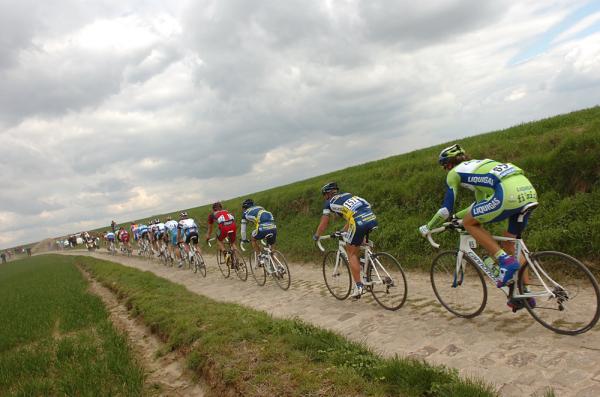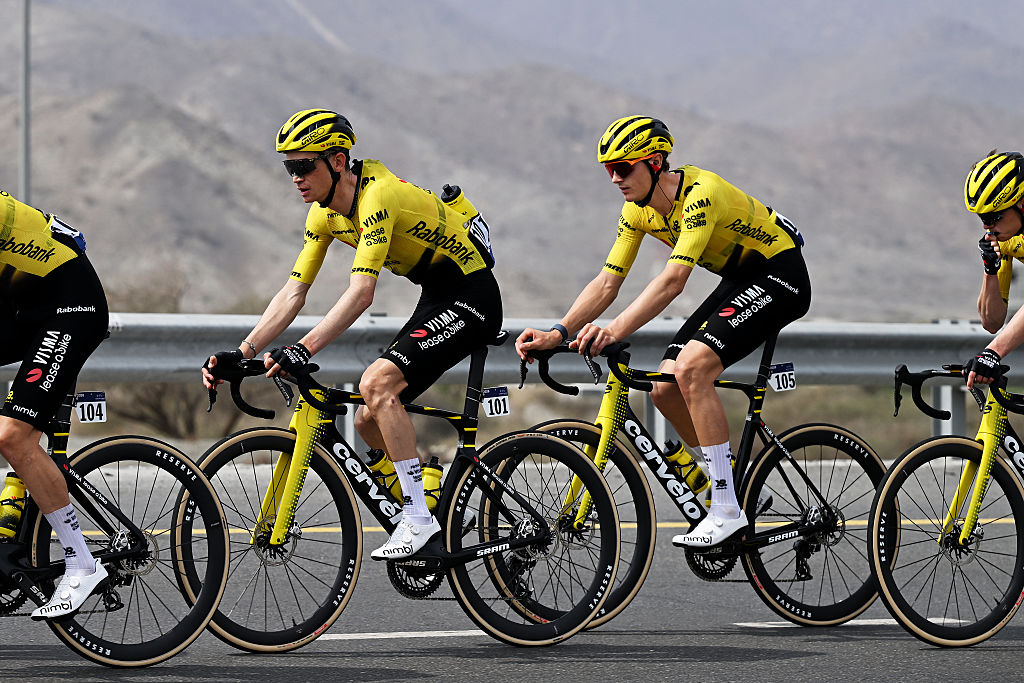Race director defends Tour’s stage three pavé finish
No roadside bike changes allowed in stage three finale
The latest race content, interviews, features, reviews and expert buying guides, direct to your inbox!
You are now subscribed
Your newsletter sign-up was successful

Tour de France race director Jean-Francois Pescheux has defended the organiser’s decision to include several cobblestone sections in the finale of stage three leading to Arenberg on Tuesday. Voices of criticism have been raised as the stage is feared to cause damage amongst the general classification contenders early in the Grand Tour, before the race even reached the mountains.
The organisers' point of view is that the pavé sectors are one ingredient that make up the Tour's challenge, equally dangerous than others. "Could you imagine not putting any mountain passes on the Tour parcours?" he asked Cyclingnews in return to our question whether it was justified to include a total of 13,150 metres of Paris-Roubaix pavé in the finale of a nervous early Tour stage. "The descents of those passes is extremely dangerous. Cycling as such is dangerous. It's part of the bike race. When they come down a mountaintop at 80 km/h, nobody says anything."
The last sector of Haveluy, 2,300 metres long, comes with 10 kilometres to go before the stage finish. "If we had acted irresponsibly, we would have made the race pass on the Arenberg sector, with the finish at the end of it," continued Pescheux. The stage will end at the foot of the 'Chevalet', the former entry to the coal mine, in front of the Arenberg forest sector.
"Those who don't like the pavés are those who like the mountains. But the sprinters, who don't like the mountains, don't come criticising the mountain stages. If we had to stage the Tour on motorways and boulevard finishes, there wouldn't be any mountains anymore, no descents, no delicate passages. The Tour de France is what it is today because it goes everywhere."
Garmin-Transitions team manager Jonathan Vaughters agreed. "The cobblestones make the race interesting, they add an element to it," he told Cyclingnews. "They're a hurdle you have to overcome in the race, just like the rain or the crosswinds or the mountains."
But recent suspicion concerning hidden motors in bicycles made the International Cycling Union (UCI) add another difficulty in the already torturous stage. In the race finale, teams would normally have posted their assistants with spare bikes at the roadside to provide for quick bike changes if their leaders suffer a mechanical. This is what is usually done in Paris-Roubaix, but to exclude any possibility of electrical treachery, complete bike changes are now possible only from team cars.
"I don't like that decision," Vaughters said. "If someone breaks a bike, and the cars are two kilometres behind... Normally, we would have a person with a bike at every cobblestone sector, just waiting there. But now, the bike has to come off the roof of a team car."
The latest race content, interviews, features, reviews and expert buying guides, direct to your inbox!
In order to maintain everybody's chances, the race organiser has decided to determine specific zones of technical assistance after the last four cobbled sections, where teams will be allowed to provide spare wheels and other mechanical help.
Still, Vaughters thought that other alternatives existed. "You put a box on the side of the cobbles [for frame scanning - ed.], put a tag on them and then they're ready. I know that logistically, that's very difficult to do. But it would be better than just banning bike changes.
"It's just going to be a crazy day anyway,” he added. “For sure, there'll be a couple of GC contenders that are going to be eliminated from the race. And it is also very likely that riders will be eliminated because of a bike difficulty and being unable to change. And I don't think that is in the interest of fair play, either."
